By the end of this post, you will realize if you are a caregiver or codependent caretaker and what is the healthy way to live for you.
The conventional belief is that we can never love too much, but that isn’t always true. Sometimes, love can blind us so that we deny painful truths. We might believe broken promises and continue to excuse someone’s abuse or rejection. We may empathize with them but not enough with ourselves.
If we grew up in a troubled environment, we might confuse our pain with love. Although relationships have disappointments and conflicts, love isn’t supposed to be painful and hurt so much. As codependents, we have a habit of ignoring our needs and constantly putting those of others first. We end up self-sacrificing. By not having boundaries, we harm ourselves and the relationship. We might also confuse love with being someone’s caretaker.
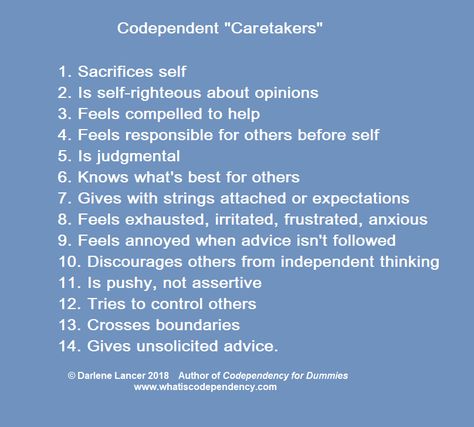
Related: The Mother Wound: How It Can Lead To Codependency
Caretaking vs. Caregiving
Parental love is expected to be unconditional and one-sided toward their young children. As they grow, good parenting includes mutual respect for each others’ boundaries. Caregiving is a normal outgrowth of love and is also part of healthy adult relationships. When someone we love is in need, we naturally want to help.
Yet there’s a difference between “caregiving” and codependent “caretaking.” In the latter situation, we might care for someone in a manner that is intrusive or enabling. We do harm to the other person and risk sacrificing our own lives in the process.
With a codependent caretaker, often there’s more “taking” than giving. The caretaker’s objectives can subtlety take precedence. This is because caregiving comes from abundance, and caretaking emanates from need and deprivation.
Caretaking can become so habitual that it enables and disables the recipient so that he or she doesn’t take responsibility for his or her behavior and needs. It treats that person like a child who doesn’t have to grow up and reinforces his or her lack of confidence. Again, due to the lack of boundaries, caretaking eventually negatively impacts the relationship as a whole.
Related: How to Change Your Codependent Behaviors
When one partner acts as a codependent caretaker of the other, it creates an imbalance and unhealthy mutual dependency – codependence. The caretaker doesn’t have to be as vulnerable as his or her partner. The caretaker feels needed and superior and at the same time is assured that his or her partner won’t leave. Over time, both end up feeling guilty and angry.
The more a codependent caretaker becomes invested in the problems of his or her partner, the more that advice and control characterize the dynamic between them. What may have started out as an act of love devolves into resentment when well-meaning advice or wisdom isn’t followed.
So how can you tell the difference between caregiving and caretaking? Here are some of the differences:
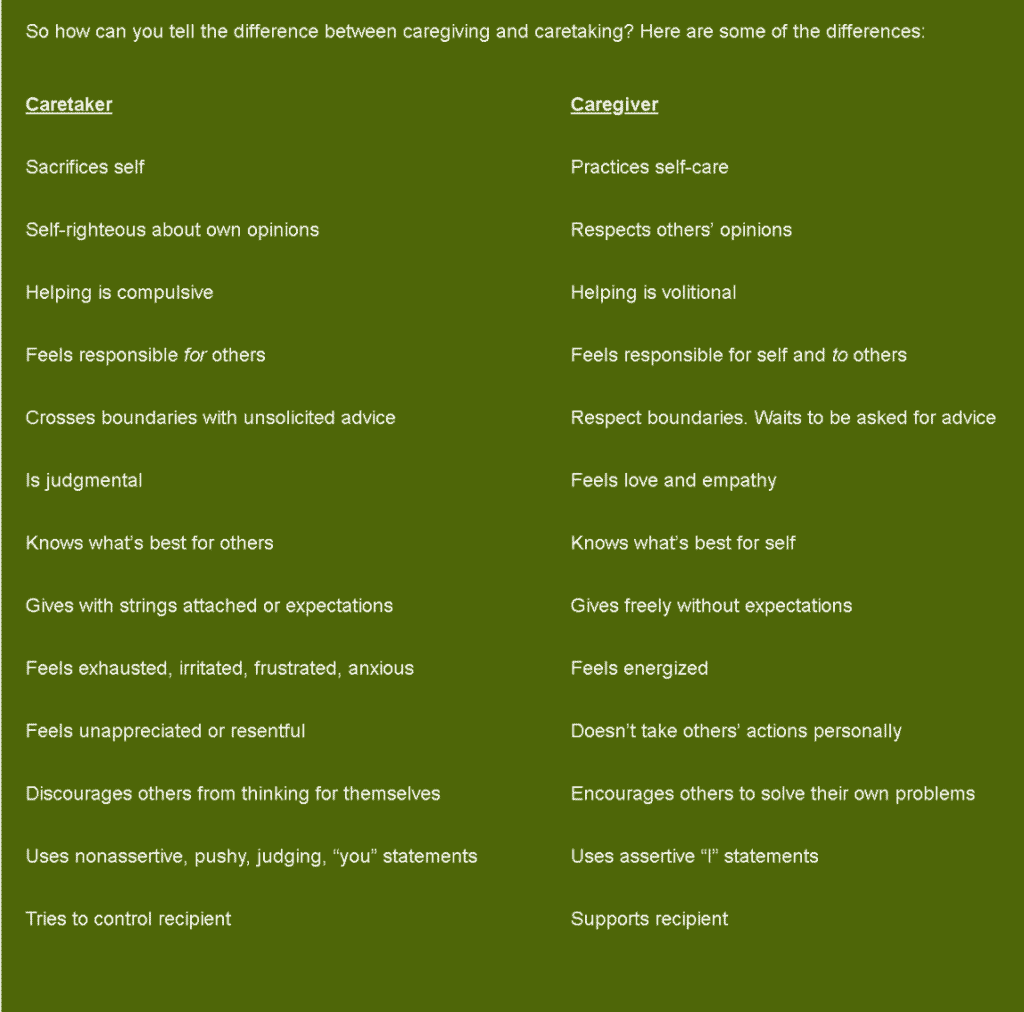
A Caretaking Quiz
Here are some questions to ask yourself:
1. Do you give unwanted advice?
2. Do you judge your partner?
3. Do you believe that you know what’s best?
4. Do you repeatedly do things for your partner that he or she is capable of doing?
5. Does your partner meet your needs?
6. Is your giving reciprocated?
7. Do you practice self-care?
8. Do you feel responsible for your partner’s negative feelings?
9. Do you feel guilty saying “no” to your partner?
10. Do your partner’s problems preoccupy your thoughts?
11. Can you listen without giving advice?
12. Do you get upset if your advice isn’t followed?
13. Do you give with strings attached?
14. Is it uncomfortable to listen to another’s problem and not offer solutions – even when asked?
Learn to Detach with Love
The challenge of change is learning to detach and let go. That doesn’t mean we care any less about our loved ones, but we allow them the dignity of making mistakes and finding their own way.
We take care of our own needs that we may be neglecting, and we empower others to do the same by supporting their choices. That also means we empathically and lovingly allow them to suffer the resulting consequences, by not removing the natural consequences of their actions, nor having an “I told you so” attitude.
Make “Live and let live” your mantra, and practice saying things like:
- “I’m so sorry to hear about your situation.”
- “You really have a dilemma.”
- What are your options?”
- What decision (actions) are you leaning toward?” or “What does your gut tell you?”
- “Trust your instincts.”
- “I’m sure you’ll find a solution.”
- “I believe you can handle it.”
Related: Codependent Relationships: Takers and Caretakers
Watching those you love struggle can be very difficult, and it can take all your strength not to jump in and help, especially when others expect you to behave in the old way.
They’ll likely try to reel you in to give advice and other help. Because caretaking can be a compulsion, you may need outside support to maintain your boundaries and be overwhelmed with guilt. Detachment doesn’t mean being emotionally cold but taking a hands-off – ego-off approach. This is truly loving someone. Your guilt will lessen in time and with it resentment makes for a better relationship.
For more on detachment and enabling, see Codependency for Dummies, and get “14 Tips for Letting Go” on my website.
© Darlene Lancer 2015
Written by Darlene Lancer JD, MFT
Originally appeared on What Is Codependency
Republished with permission
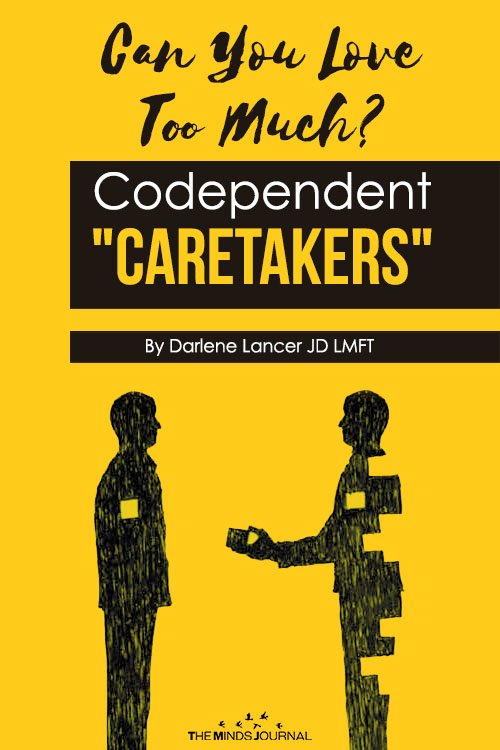
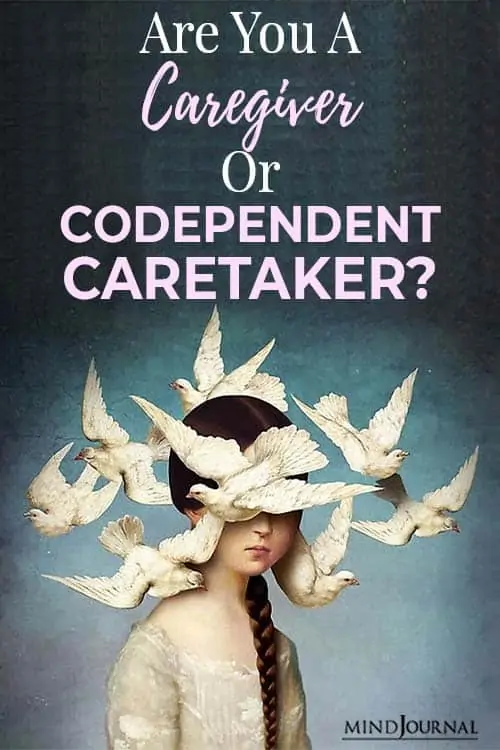
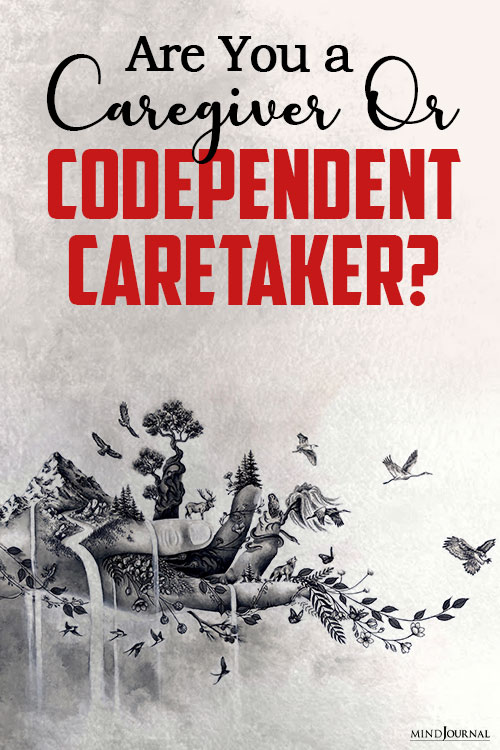
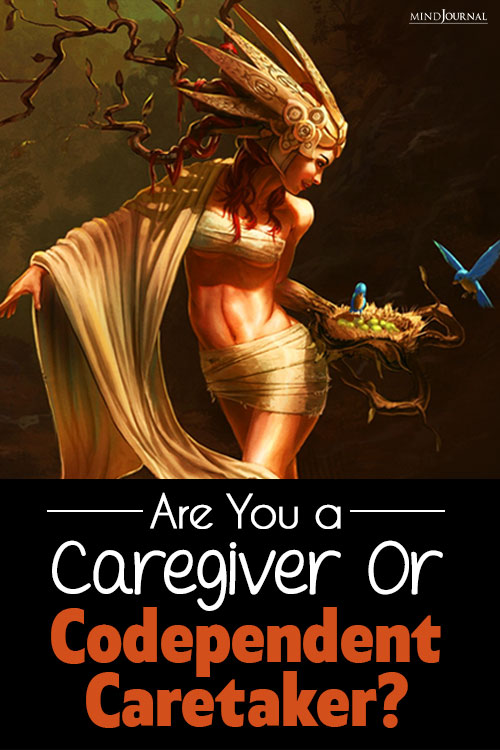
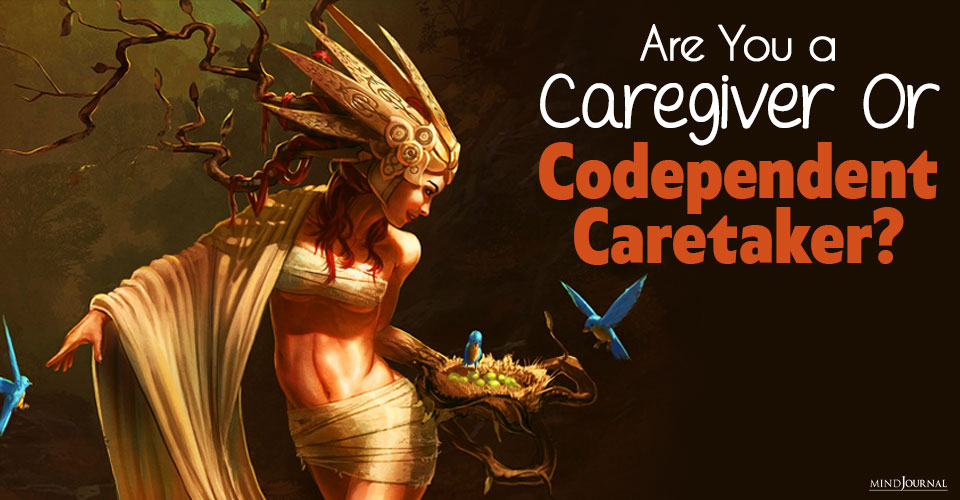
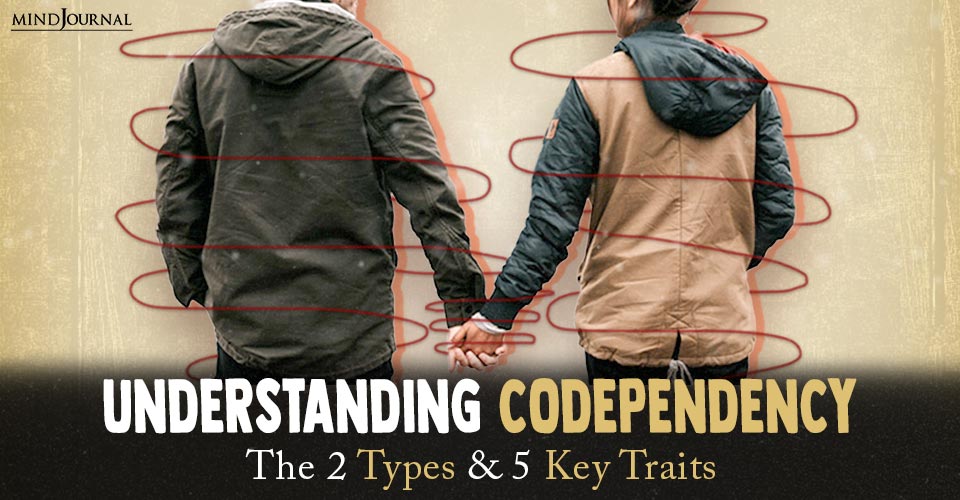
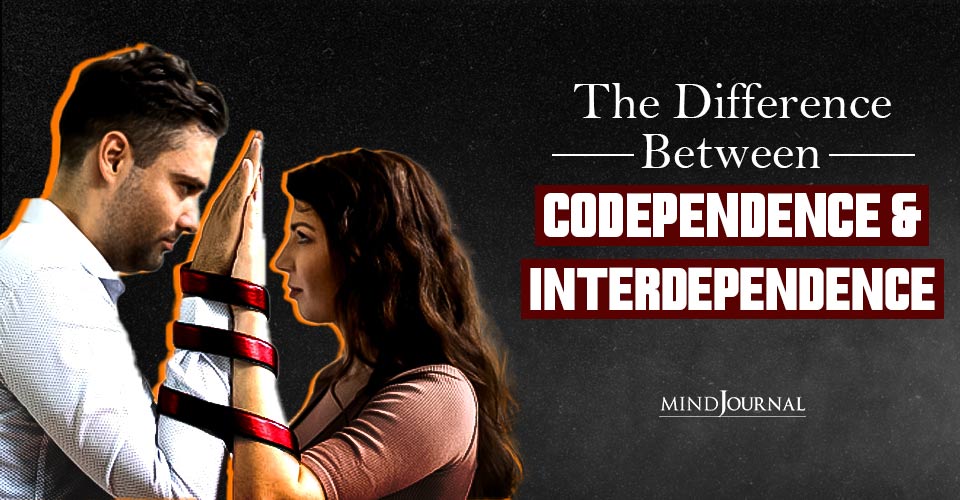
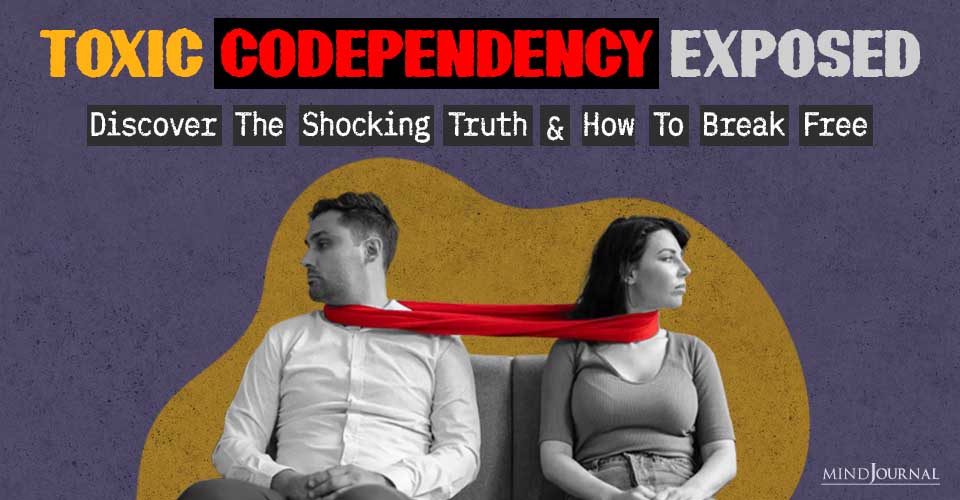
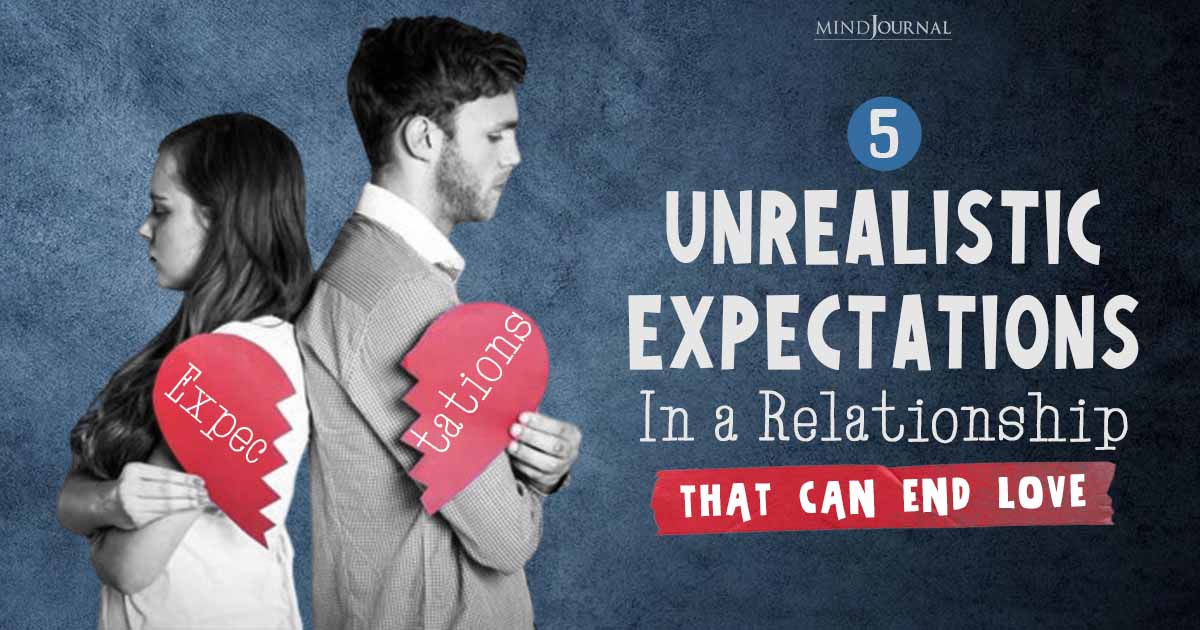
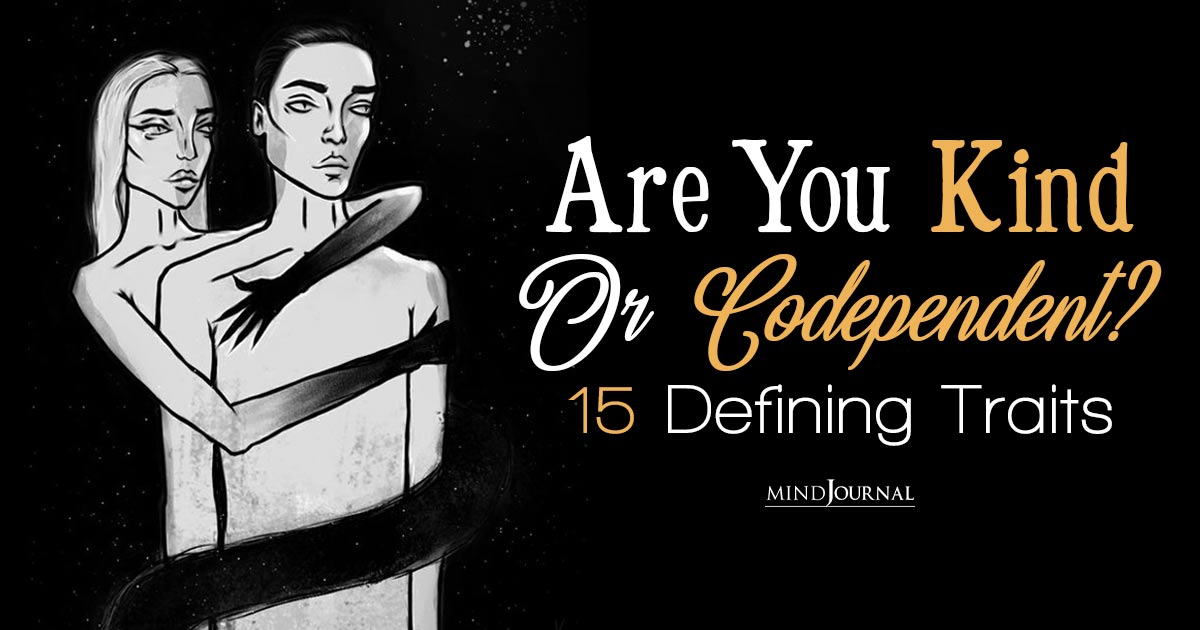
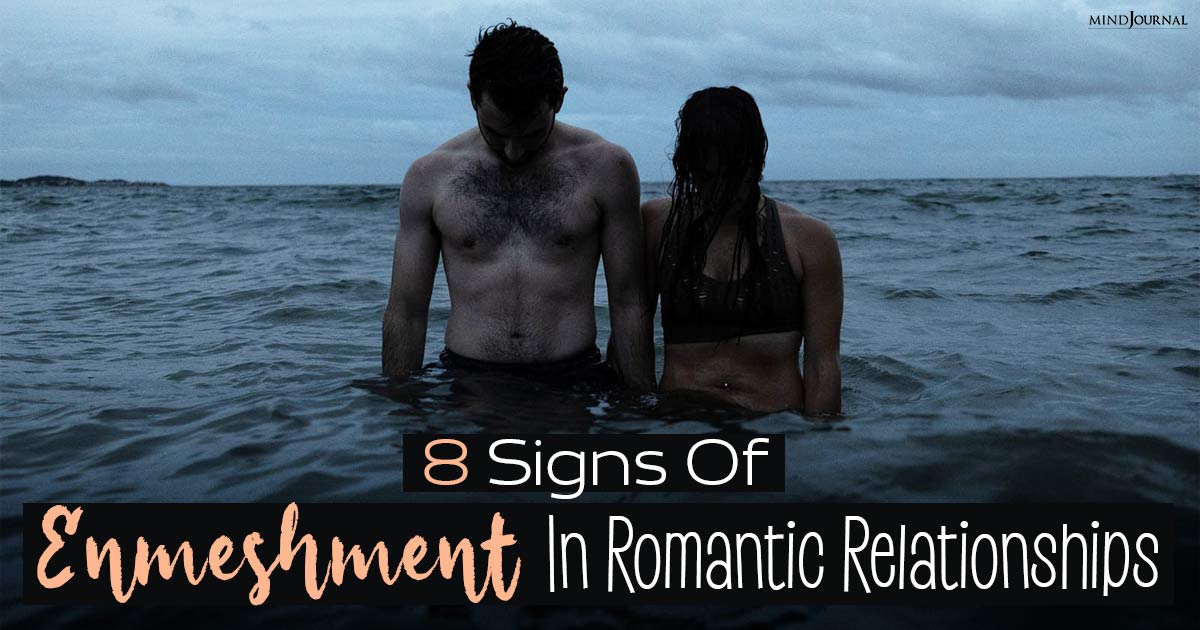
Leave a Reply
You must be logged in to post a comment.